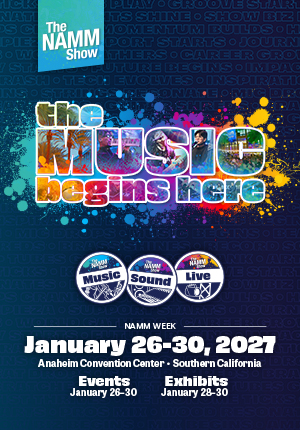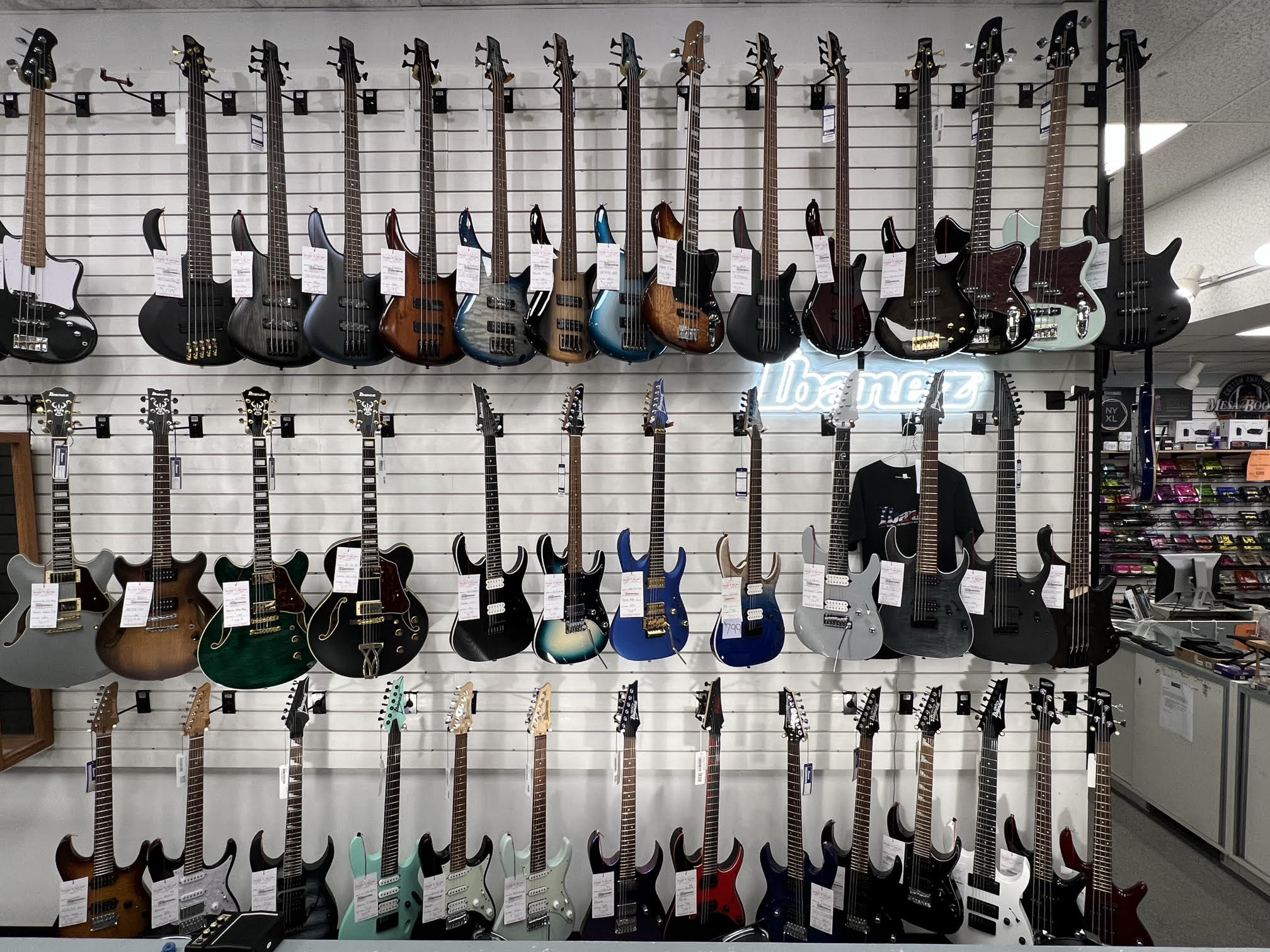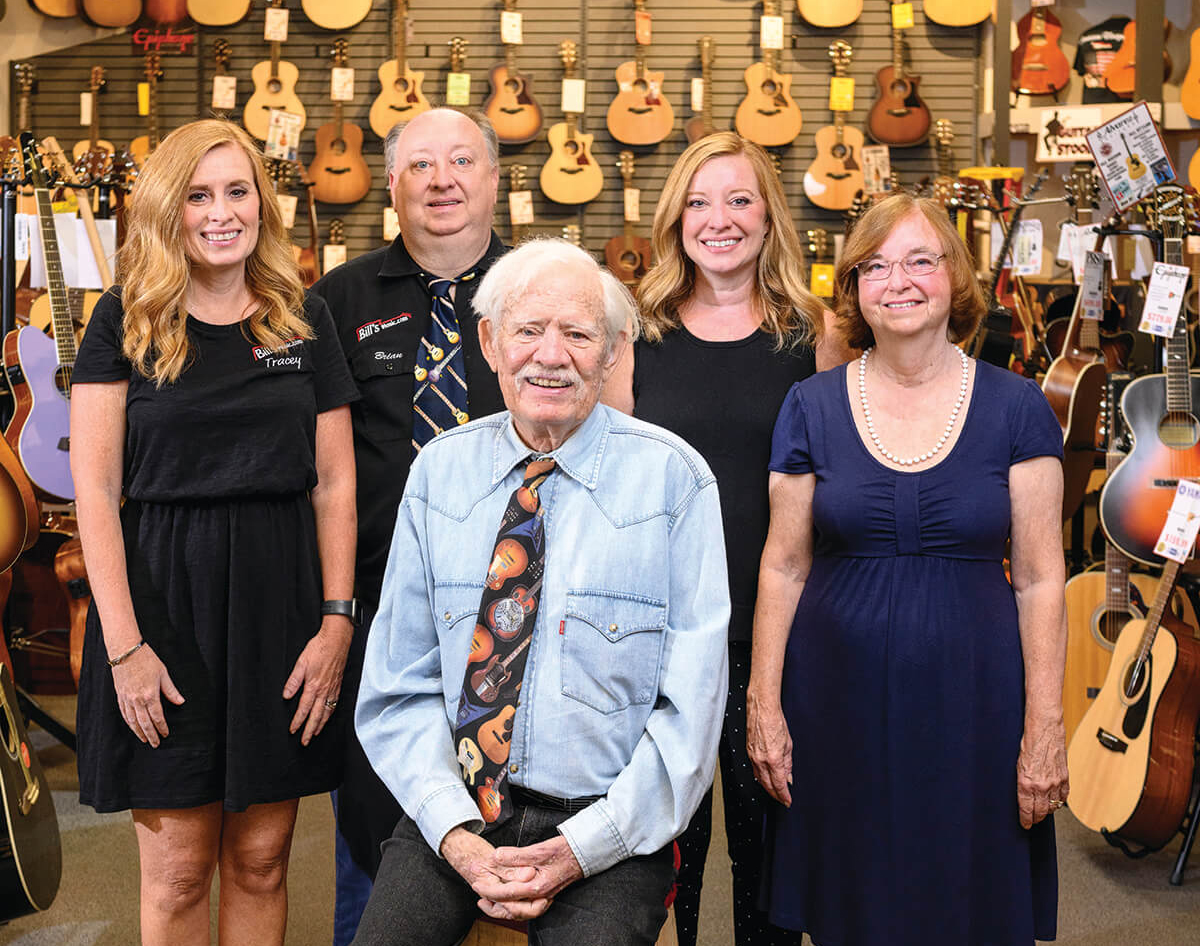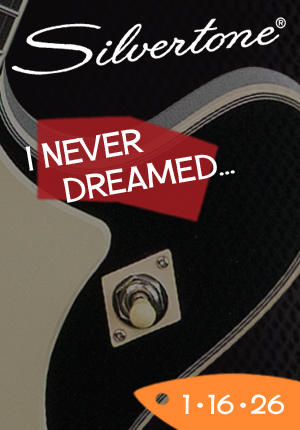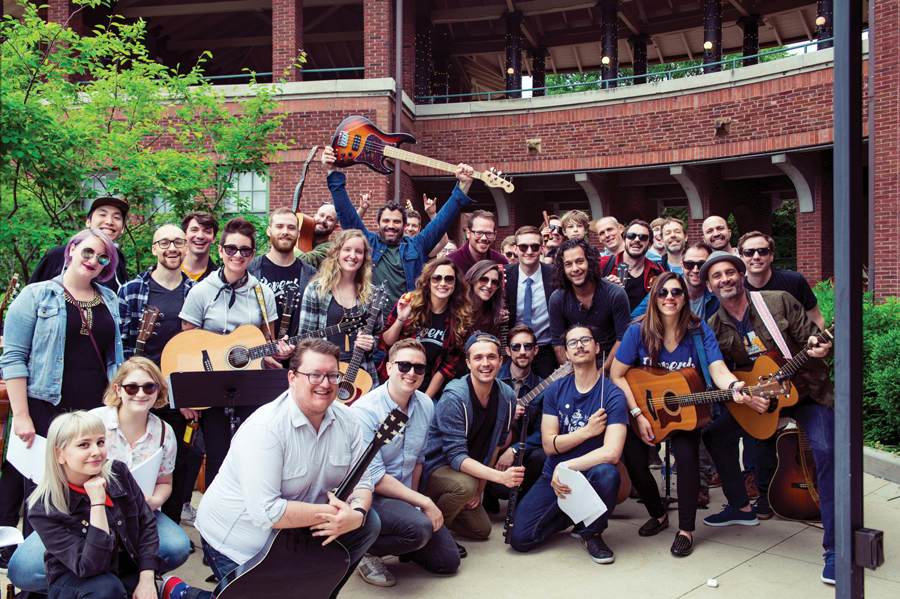
The Reverb staff during Make Music Day 2019 at the Lincoln Park Zoo in Chicago.
December 11, 2019 I Interview
Reverb Acquired By Etsy: An Exit Interview With Reverb’s Founder And CEO David Kalt
By Frank Alkyer
MUSIC INC.: Congratulations on the sale of Reverb. How did this sale come about, and why now?
David Kalt: Reverb has always found inspiration in Etsy. To me, they were one of the first online marketplaces to take on tech giants like Amazon and eBay—and succeed—by tailoring their platform to a specific community. In many ways, Etsy forged a path for Reverb by giving me the confidence to start a music gear-only website and app when I saw the need for it less than a decade ago.
We’ve had a friendly relationship with Etsy for a number of years. Like us, Etsy supports business owners and entrepreneurs alongside artists and makers. They’ve also grown their business over the past 15 years by building not only an incredible eCommerce platform but a passionate community. Perhaps most importantly, Etsy understands that Reverb is successful because it was built for the musical instrument industry by a team of musicians. They want to support us as we continue to grow, but they don’t want to change what makes our platform and community special.
MI: You spoke openly, from the beginning, about your plan to take Reverb public. Was selling it to a publicly traded company like Etsy an option you had thought about back then?
DK: We’re always evaluating opportunities that we think can help Reverb continue to grow. In this case, we had many candid discussions leading up to the final decision, and it ultimately became clear that there’s no other company that could support and enhance Reverb like Etsy could.
Over the past seven years, we’ve built so much more than a website and app—we’ve built an online destination that the MI community relies on for income, inspiration and the perfect piece of gear. We’ve positively impacted millions of music makers all over the world, but there’s still so much more to be done. I truly believe that joining a larger marketplace with a similar mission and values is the best next step for the business.
MI: Will you stay on in any capacity?
DK: I’ll stay closely involved for as long as it takes to ensure a seamless transition, and after that, I’ll continue to be Reverb’s biggest fan. I’m looking forward to watching this community continue to grow, while also spending more time with family.
MI: What were the biggest challenges you faced in building the company?
DK: With any marketplace, your first challenge is figuring out how to create liquidity. I knew that we could attract musicians to the platform after we got sellers on board, but convincing sellers to use a site that doesn’t yet have an audience is tricky. I spent a lot of my time the first few years of Reverb meeting with shop owners and retailers face-to-face to describe my vision for the company. That’s still a big part of what differentiates Reverb today—we have an entire team dedicated to supporting our sellers and making sure they have everything that they need to succeed.
MI: What are the biggest lessons you learned?
DK: If there’s one piece of advice I could pass on, it would be to never stop learning and playing—in music, in business and in life. Knowledge is always at your fingertips as long as you stay curious and keep asking questions. Reverb is the destination for music makers that it is today because we never settled and constantly asked ourselves what more we could be doing to make buying and selling gear online easier.
MI: For all of those retailers out there who have embraced your platform, what would you like to say to them?
DK: Thank you to the retailers and everyone in the industry who have supported us over the years. The MI community has welcomed us in with open arms, and it’s because of your loyalty and thoughtful feedback that Reverb is what it is today. One of the best parts of my job as Reverb’s CEO has been meeting sellers and hearing the stories of how Reverb has helped them grow or even launch their business. Those success stories are the reason our team is excited to come to work each day.
MI: What advice do you have for them to negotiate the rapidly changing retail market? What opportunities do you see?
DK: In light of the recent decision to exempt finished musical instruments, parts and accessories from CITES restrictions, there will be a huge opportunity in 2020 for sellers to find new customers and sales abroad. We have musicians from all over the world on Reverb, and now it will be easier than ever for buyers and sellers to connect from wherever they are in the world.
MI: Finally, what’s next for you? Do you think you might be in the music or music products industry in some
other capacity?
DK: For now, my priority is helping set up Reverb’s next CEO and current leadership team for success. After that, the opportunities are really endless. I came up with the idea for Reverb based on a pain point I was feeling as a guitar store owner. Prior to that, I started a finance company that I launched for the same reason—as a solution to a problem I was experiencing. I don’t have any current plans to jump into anything or start a new business, but who knows what pain point I might discover in the
coming years. MI

